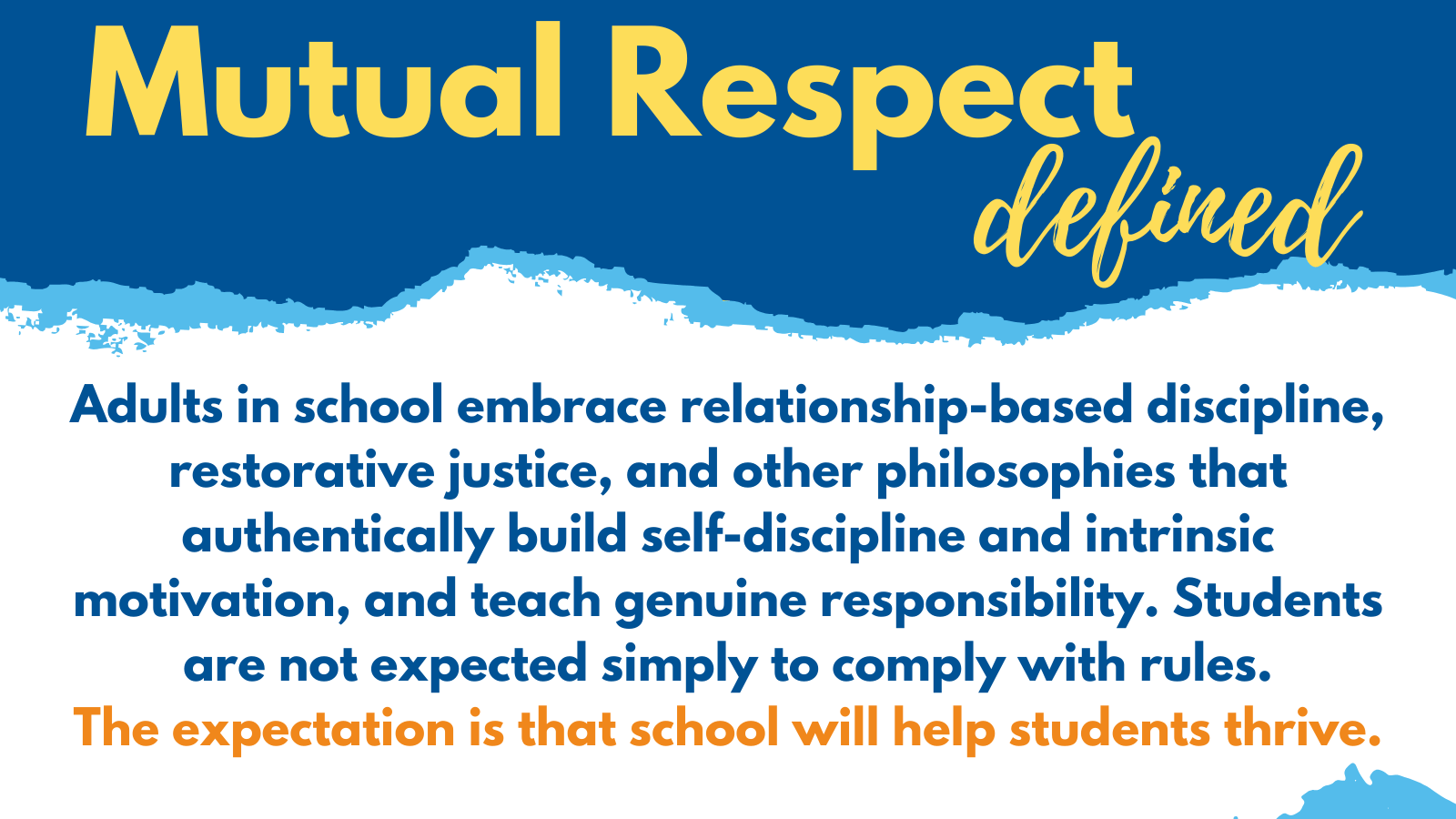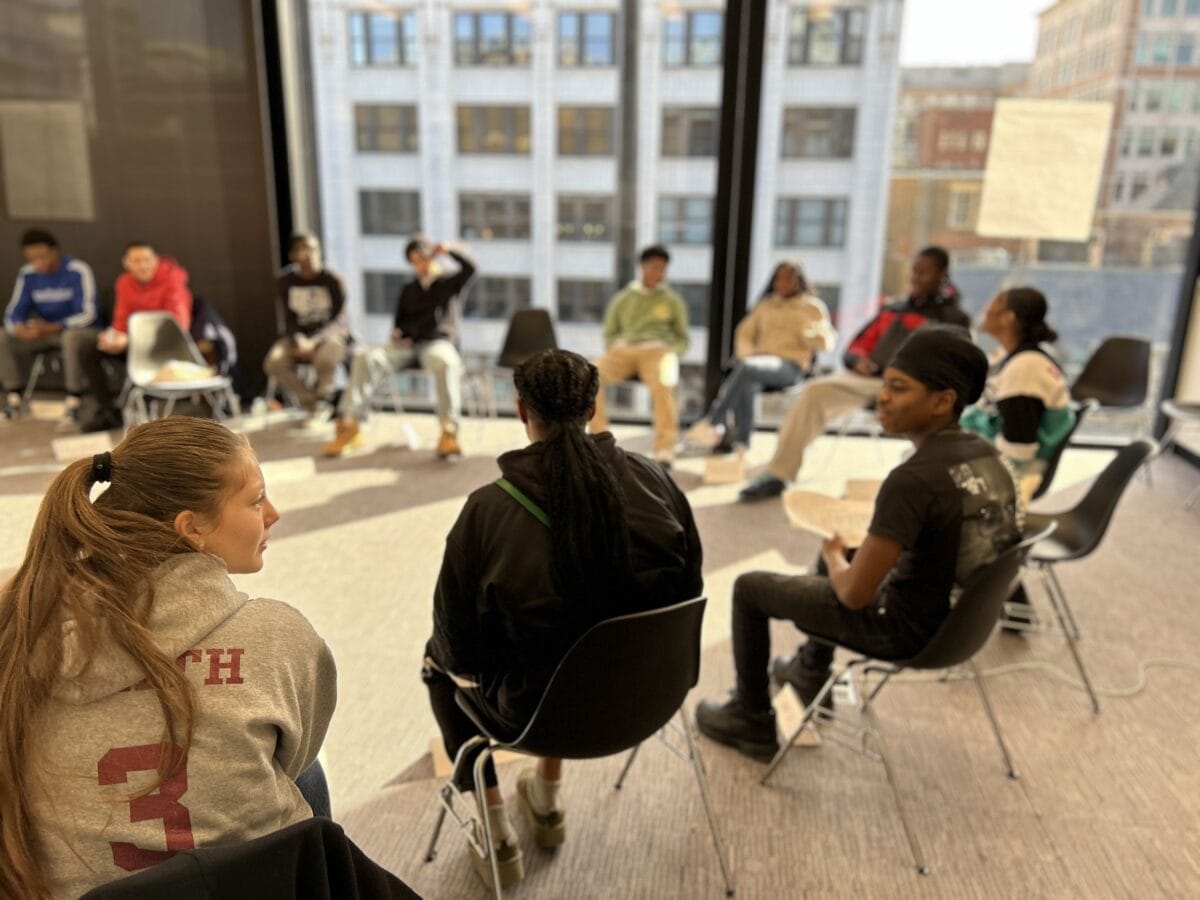
Hooray for Monday is a weekly blog filled with questions, ideas, reflections, and actions we can all take to remodel the school experience for students. Prefer audio? Listen to the Hooray For Monday podcast! Available on your favorite platforms here.
March 4, 2024
By Jenna Fournel, Director of Teaching and Learning
For nearly a decade, Inspired Teaching’s Speak Truth program has provided a powerful example of our teaching philosophy in practice.
Over the next several weeks we’ll be looking at how giving students the reins when it comes to conversation in the classroom can boost engagement and lead to learning at a level you, and your students, never imagined. If you’re curious to learn more, join us for our March online Inspired Teaching Institutes for teachers (3/13 and 3/19 at 7 PM ET) which focus on bringing the Speak Truth model into all classrooms.
Last Monday, a group of high school students from six different Washington, DC schools came together for a Speak Truth discussion on whether punishment is an effective way to prevent someone from breaking rules.
At the outset, the group was neutral on the topic, noting that much depends on circumstances. But as we explored the concept in the context of rule-breaking in school and crime in the world outside of school, our discussion shifted to thinking about what causes a person to break a rule in the first place. When students considered the root causes of failing to adhere to a school’s dress code (“not having enough clothes at home to fit the uniform criteria” “not fortunate enough to buy more uniforms”), or choosing to steal something from the corner store (“no parents supervising them at home” “some dealt with abuse and took it out on the world” “nobody to talk to about the problems they’re going through”), they examined the impact these factors can have on a child’s choices or lack thereof.
Through this lens, they considered whether schools help or hurt students’ capacity to follow rules. One noted, “Punishments will NOT prevent everyone from breaking a rule. In fact, it may lead to the opposite result occurring.”
Others agreed, noting that punishments often alienate children from the institutions designed to protect them because they ignore and do not help with the very real struggles at the core of the problems. As one student explained, “School is supposed to be a place where we can, you know, let go, learn something new, and not feel so stressed out. However, there is still something that’s escalating the feeling of frustration and disconnection and it potentially leads to negative behavior.”
I found it poignant that so many of the student reflections mirrored the concerns Jonathan Kozol expressed in our interview last week. Young people can help us better see the flaws in our adult systems and offering them the space to do so is a critical component of Mutual Respect, one of Inspired Teaching’s 5 Core Elements.

Mutual Respect is central to Speak Truth discussions because students take on the responsibility of actively listening to and connecting with one another.
The discussion provides an open space for wrestling with the things that matter in their lives. It models what is possible when a student’s voice and perspective can be held with curiosity and not judgment by their peers. In today’s resources we share four ways we bring Mutual Respect into the design of Speak Truth sessions.
May you find something new to try this week!
For additional insights, resources, and information on Inspired Teaching teacher and youth programming, subscribe to the Hooray For Monday newsletter!

